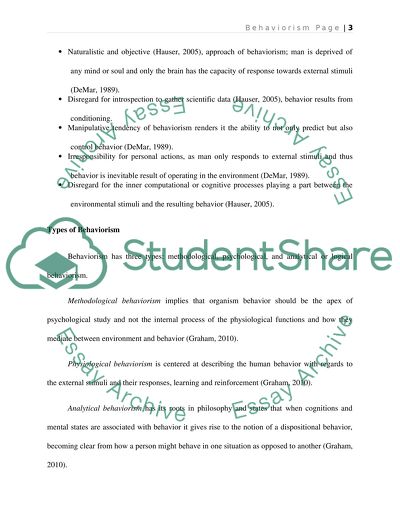Cite this document
(“Behaviorism Essay Example | Topics and Well Written Essays - 1250 words”, n.d.)
Retrieved from https://studentshare.org/psychology/1469070-behaviorism
Retrieved from https://studentshare.org/psychology/1469070-behaviorism
(Behaviorism Essay Example | Topics and Well Written Essays - 1250 Words)
https://studentshare.org/psychology/1469070-behaviorism.
https://studentshare.org/psychology/1469070-behaviorism.
“Behaviorism Essay Example | Topics and Well Written Essays - 1250 Words”, n.d. https://studentshare.org/psychology/1469070-behaviorism.


